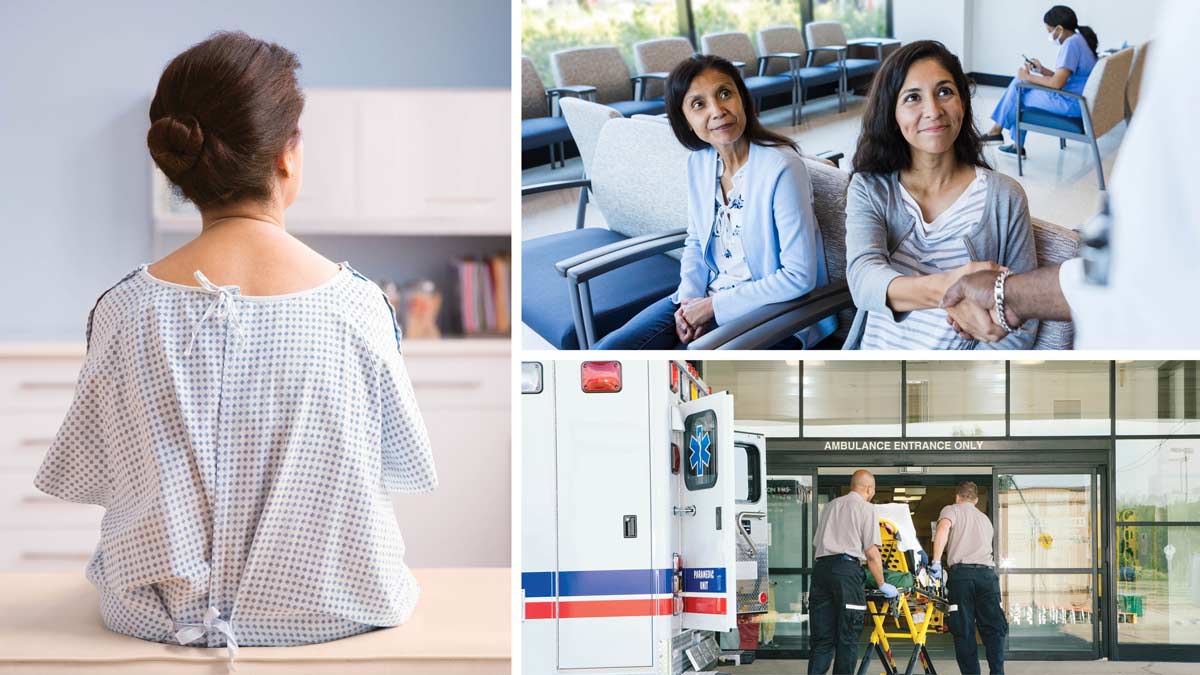
For illnesses and injuries that don’t have the potential to be life-threatening, urgent care clinics—which are often open in the evenings and on weekends—might be an option.
“If you tripped and think you sprained your ankle, and it’s after normal business hours, it makes sense to head to the urgent care clinic for an X-ray to make sure, and to get bandaged up,” Gettel says. The clinic can also, for instance, test you for the flu and COVID-19, check your heart rate and blood pressure, listen to your lungs, and, if you’re experiencing painful urination, check your urine and prescribe antibiotics if you have a urinary tract infection.
Urgent care facilities are usually run by doctors, nurse practitioners, or physician assistants. “That’s different from an emergency room, which is staffed with board-certified emergency medicine physicians,” Biese says. “As a result, there may be a difference in experience and skill set.”
They’re best if your symptoms are straightforward. “Most urgent care centers don’t have the wide array of tests needed to try to figure a more complex situation out,” Biese says. And people with serious chronic health conditions, like heart failure, should probably go an ER outside of their doctor’s office hours.
Another get-seen-fast possibility for simpler problems: pharmacy walk-in clinics at major retailers such as CVS, Target, Walgreens, and Walmart, which may be open in the evenings and on weekends. These are a good option for ailments like strep throat, ear infections, and UTIs, Fulmer says. They can also treat minor sprains, cuts that don’t require stitches, and rashes caused by poison ivy.
They’re usually staffed by nurse practitioners, and because there’s a pharmacy, too, you can often get prescriptions filled at the same time. In some, like the MinuteClinics in CVS stores, staff have been trained to flag inappropriate medications in your record and send your primary care provider a summary of your visit and any recommended follow-up.









